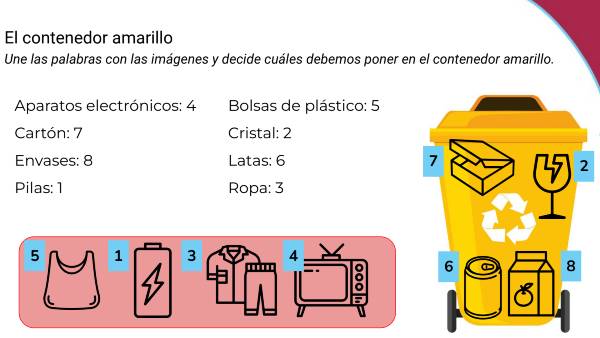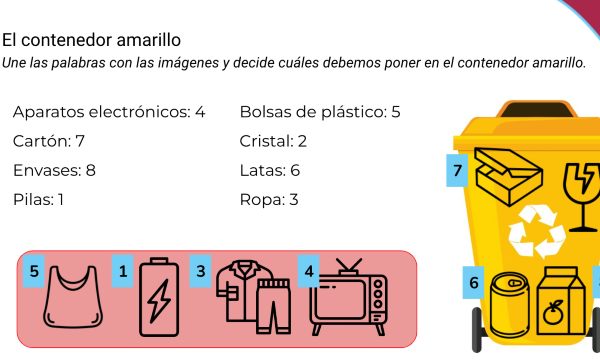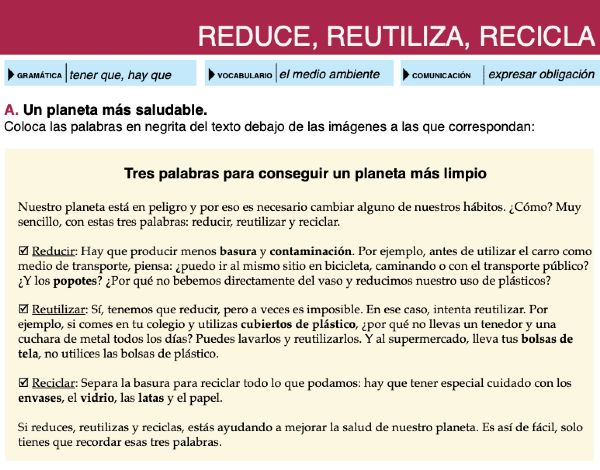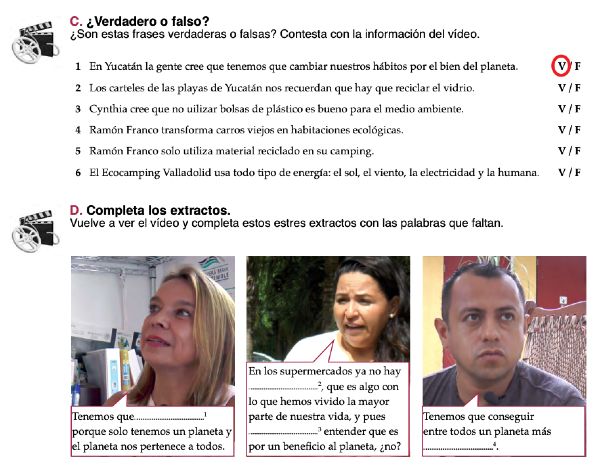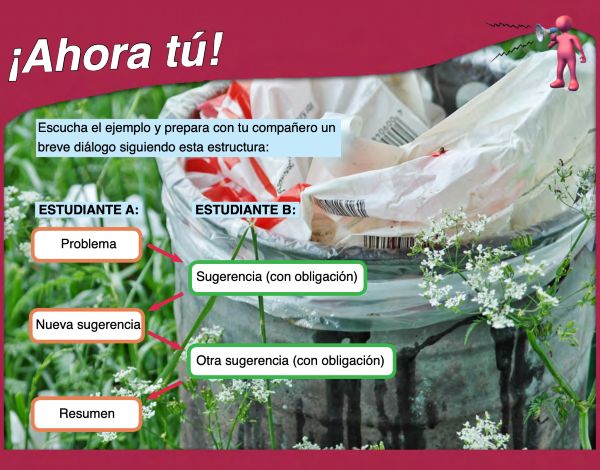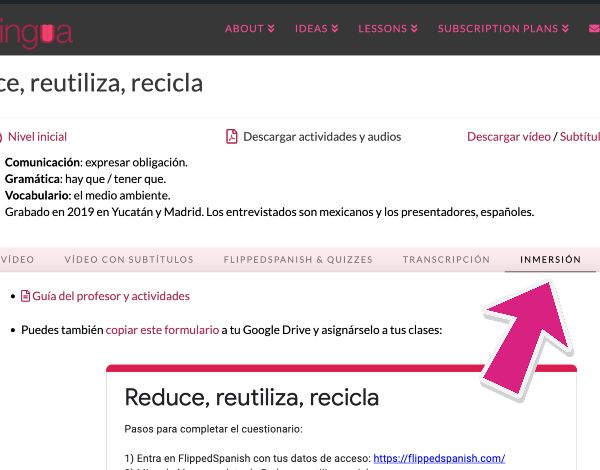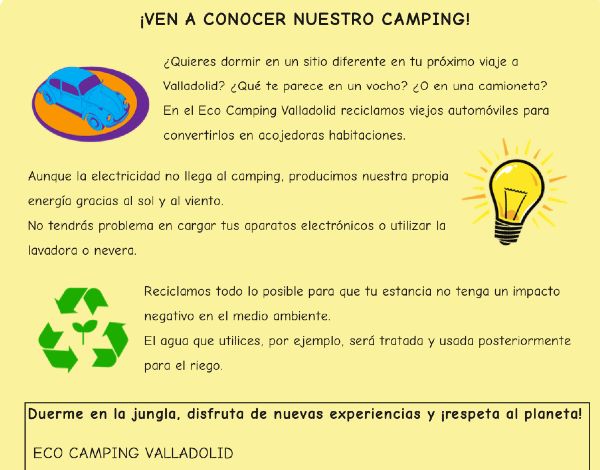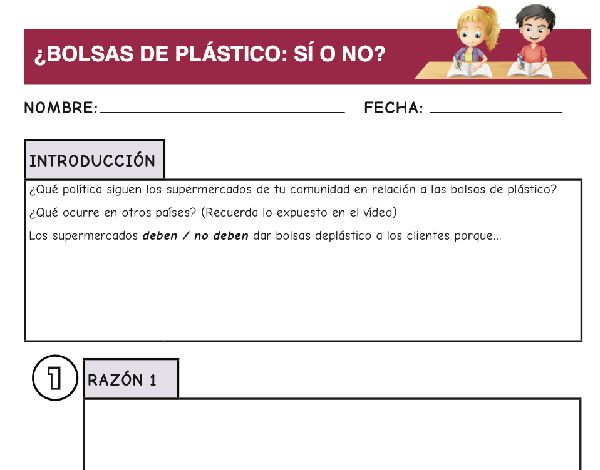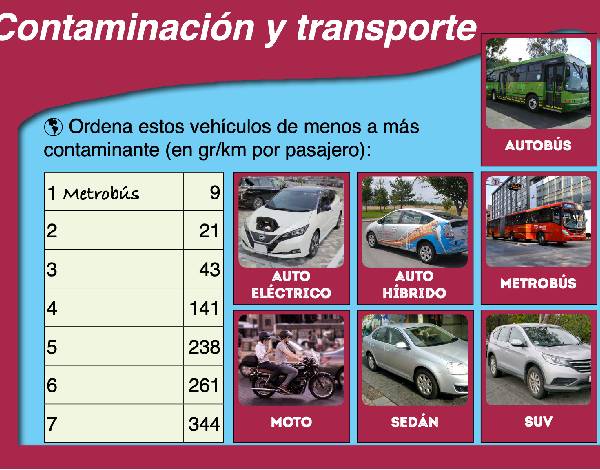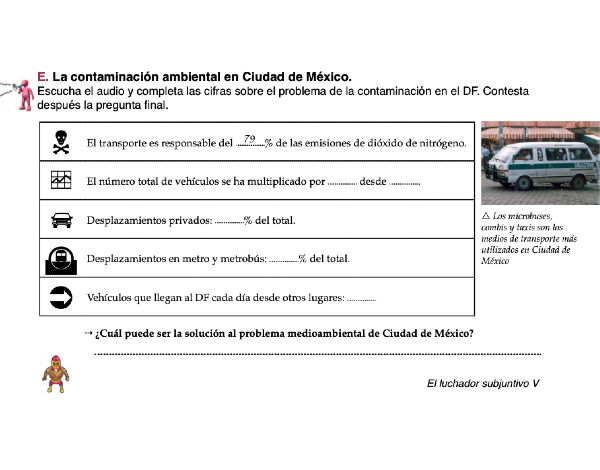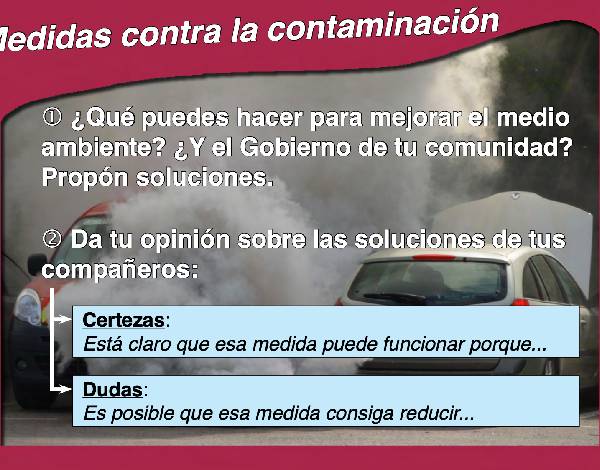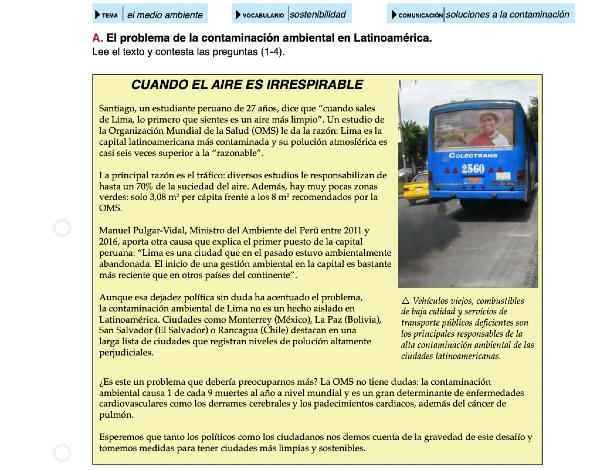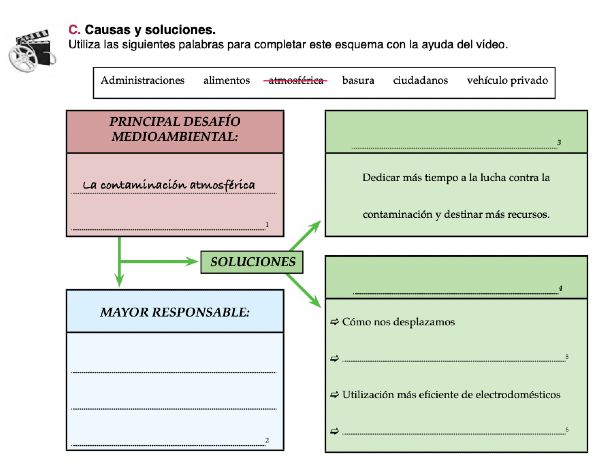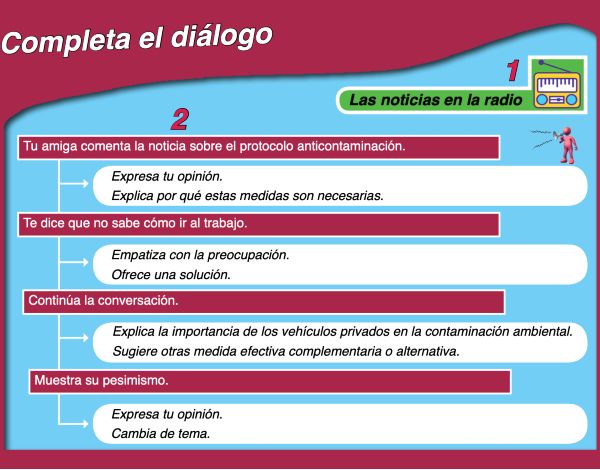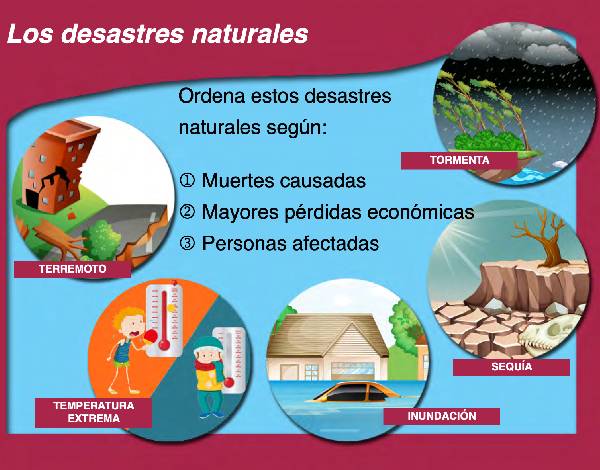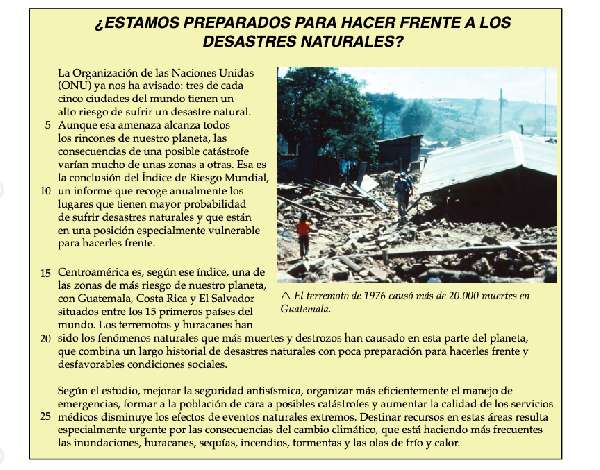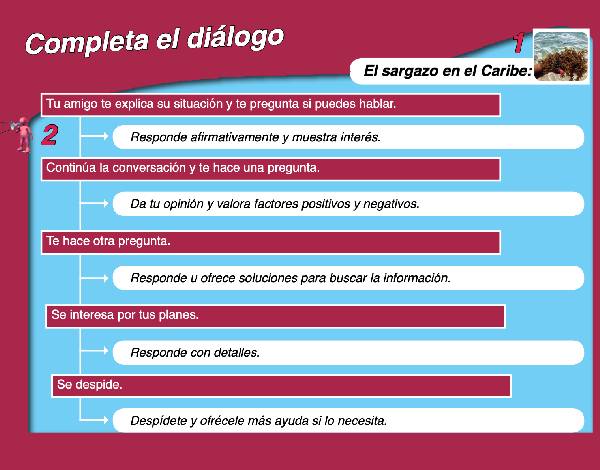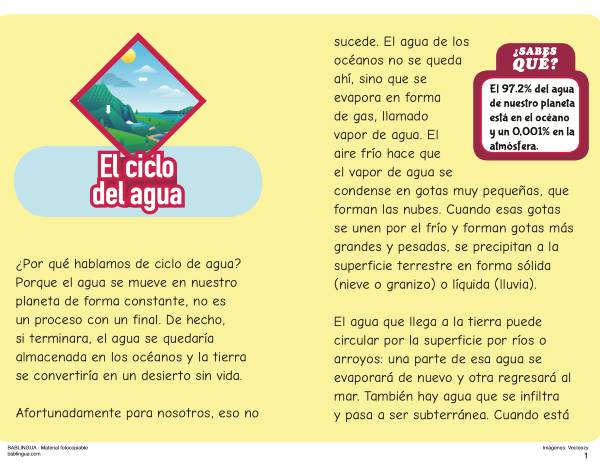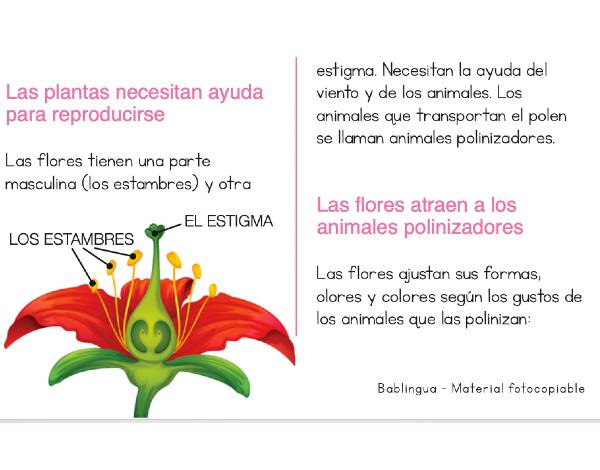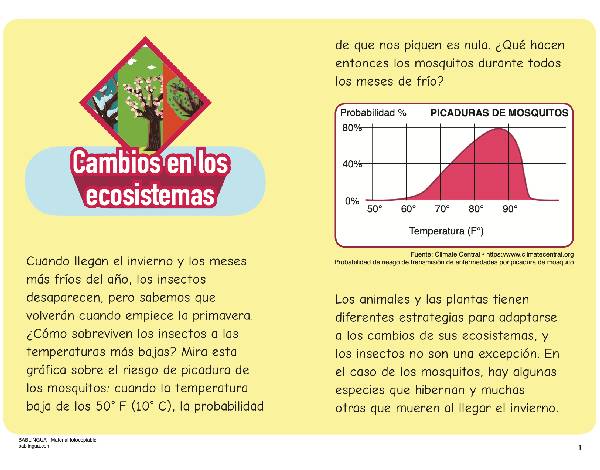1 Reduce, reutiliza, recicla (Lesson - Spanish 1 and up)
A full lesson (warm-up activity, worksheets, video and speaking prompt with an audio model) for any level that will teach students how to talk about solutions to protect the environment.
It includes a short reading about the three R's (Reduce, Reuse and Recycle) that provides examples about how to express obligation with hay que and tener que (Hay que tener especial cuidado con los envases). The text also introduces important vocabulary about environmental protections, such as contaminación, basura, vidrio and lata.
The video was filmed in Mexico and it features several examples about what people in Yucatan are doing to protect the environment. After watching the video, students will be ready to have their own conversations about how we can contribute to reduce our environmental impact, following the model of an audio.
2 Reduce, reutiliza, recicla (Additional materials - Spanish 3 and up)
The immersion tab of this lesson has more advanced materials that you can combine with the same video:
- A reading with an email format and questions about International Plastic Bag Free Day (3 July).
- A short text about Eco Camping Valladolid and questions to prepare students to watch the video.
- A writing guide so students share their opinions about plastic bag policies at supermarkets.
- A guide to help students make a campaign about an environmental issue.
3 ¿Son los SUV responsables de la contaminación? (Lesson - Spanish 3)
Students will learn how to express doubt and certainty with this full lesson on the subjunctive and the environment. It includes a 7-minute video, and an audio activity about how traffic in Mexico City has recently changed.
4 La contaminación ambiental (Lesson - AP Spanish)
A complete lesson about air pollution, its causes and consequences. Students will read about the situation of Lima (Peru), before watching a video about the new policies that are trying to make Madrid's atmosphere much cleaner. Finally, students will participate in a simulated conversation to offer their own solutions to reduce pollution.
5 Los fenómenos naturales: el sargazo (Lesson - AP Spanish)
Students will start this full lesson giving their opinions about how dangerous several natural disasters are (droughts, earthquakes, floods, heat waves and storms). Then, they will read a short text about how Central America is one of the most likely areas to be hit by a natural disaster.
The 7-minute video will take your class to Yucatan, Mexico, to see how gulfweed is changing the traditionally turquoise sea water. Students will learn about the cause of seaweed increase and the possible solutions.
There's also a simulated conversation in which students will put into practice everything they've learn in the lesson.
6 Science lessons
Several of our science lessons are perfect to celebrate Earth Day if you have advanced or immersion students:
- El ciclo del agua: two reading texts and a 4-minute video to understand the water cycle.
- La polinización: Students will learn how plants reproduce with the help of several animals.
- La migración animal: Ecosystems change, and animals develop several strategies to adapt to those changes. One of them is migration, explained through the examples of butterflies, elephants and whales.
7 El contenedor amarillo (Warm-up activity - All levels)
What should we put in the yellow container? Students will learn some new words, and share their opinions with this easy and free warm-up activity. You can use the PDF version or make a copy of the editable Google slide.
